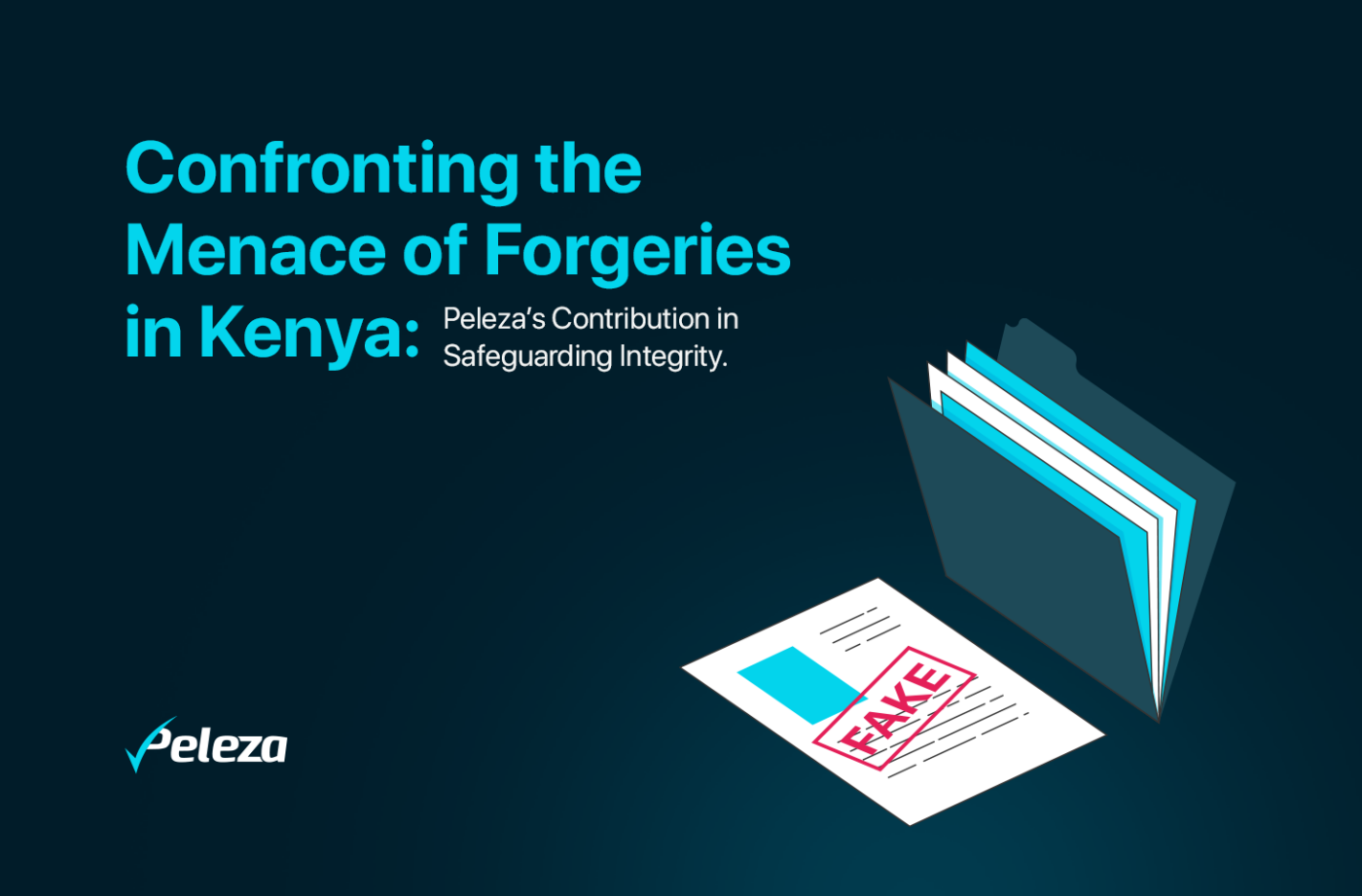Confronting the Menace of Forgeries in Kenya: Peleza’s Contribution in Safeguarding Integrity.

Introduction:
The prevalence of falsified education certificates has raised concerns about the integrity of academic qualifications in Kenya. This trend has created an atmosphere of uncertainty surrounding the authenticity of educational achievements and the credibility of individuals claiming to possess specific qualifications. The rampant forgeries in Kenya have reached alarming levels, posing a significant threat to the country’s security and integrity. Government statistics have highlighted the pervasive nature of fraudulent activities across various sectors.
The Extent of the Problem:
The proliferation of forgeries in Kenya has become pervasive, ranging from counterfeit documents to fake products and academic certificates. These fraudulent activities not only undermine the credibility of institutions but also erode public trust in essential systems. There is a pressing need for immediate and effective interventions to address the root causes of forgeries.
The Public Service Commission (PSC) recently handed over a report on forged academic certificates to the Ethics and Anti-Corruption Commission (EACC) and the Directorate of Criminal Investigations (DCI), underscoring the severity of the situation. The government’s proactive stance in investigating and addressing forgeries demonstrates a commitment to upholding standards and combating fraudulent practices in the country.
Unveiling the Issue of Good Conduct Certificate Forgeries:
The forgery of Certificate of Good Conduct documents has emerged as a concerning trend, posing a significant threat to the reliability of background checks and the overall safety and security of organizations and communities. Moreover, inconsistencies in employment records are also becoming a prevalent issue in the professional world.
From the recent report from background checks conducted by Peleza in February, these are the statistics:
- Employment Inconsistencies: 25% (200 out of 800), these were instances where there were discrepancies or inconsistencies in the employment history provided by applicants.
- Education Forgeries: 25% (250 out of 1000), these were cases where applicants submitted forged or falsified educational credentials.
- Criminal Forgeries: 15% (300 out of 2000), these were instances where applicants provided fraudulent information related to their criminal background.
Don’t let forgeries compromise your organization’s credibility. Partner with Peleza today for reliable background checks and safeguard your integrity. Learn more about our services here.

